Fitness, as we know it today, may seem to be a relatively modern invention, but physical exercise obviously goes back much further than that.
Starting from the early 20th century, people used elaborate contraptions, painful machinery, bizarre devices, and strange poses to get their ideal fit body. To illustrate just how far the industry has come, we’ve collected pictures showing the most bizarre ways people exercised over the past one hundred years.
Over the decades, thousands of methods and programs emerged, all promising to get you in the best shape of your life in the quickest amount of time possible, quite often with exercise equipment that looked ridiculously flimsy and ineffective.

Vibrating belt in 1929.
The vibrating exercise belt was invented in the 1800s, but it didn’t become popular until the 1930s and again in the 1950s. The idea was to vibrate fat so fast that it loosens and eventually burns away.
Another interesting machine was the Slendo Massager. The machine was a cage made of coiled springs that would roll over your stomach, hips, and thighs to shake away the fat.

Slendo Machine in 1940.
In the 1950s, American fitness guru Jack LaLanne innovated several pieces of equipment that have been widely used ever since. LaLanne developed the first cable-pulley machine, the Smith machine, and the first leg extensions machine. The mechanical principles behind these three pieces of equipment can be found in equipment in gyms around the world.
Resistance bands, which are essentially strips of elastic that create progressive resistance as they are stretched, were first used by former football coach Dick Hartzell for functional training in 1980.
Since then, manufacturers have modified resistance bands by attaching handles and creating anchors that allow resistance bands to mimic almost any gym exercise that can be performed with free weights, but without the bulk, making them much more portable than free weights.

Leg rollers in 1940s.
The most popular piece of cardiovascular exercise equipment, the treadmill, was first introduced in 1875, but it wasn’t used for exercise, it was used for manufacturing. In 1952, the University of Washington in Seattle doctor Robert A. Bruce began using treadmills for human stress tests.
This inspired businessmen to turn the treadmill into a consumer exercise device that would allow someone to run or jog naturally while staying in place. By the 1960s, treadmills were common in homes and gyms.
Elliptical machines, which are similar in function to treadmills but place less stress on the lower body, were first released in the mid-1990s and have rivaled treadmills in popularity ever since.

A portable sauna, known as the Reduc-o-matic, became popular in the 1940s. It was believed to melt fat.

Man in sauna tub in 1955.

Zander’s Horse-Simulation Machine. The machine was a huge hit because you didn’t really have to do anything but sit in a chair and “burn” the fat away.
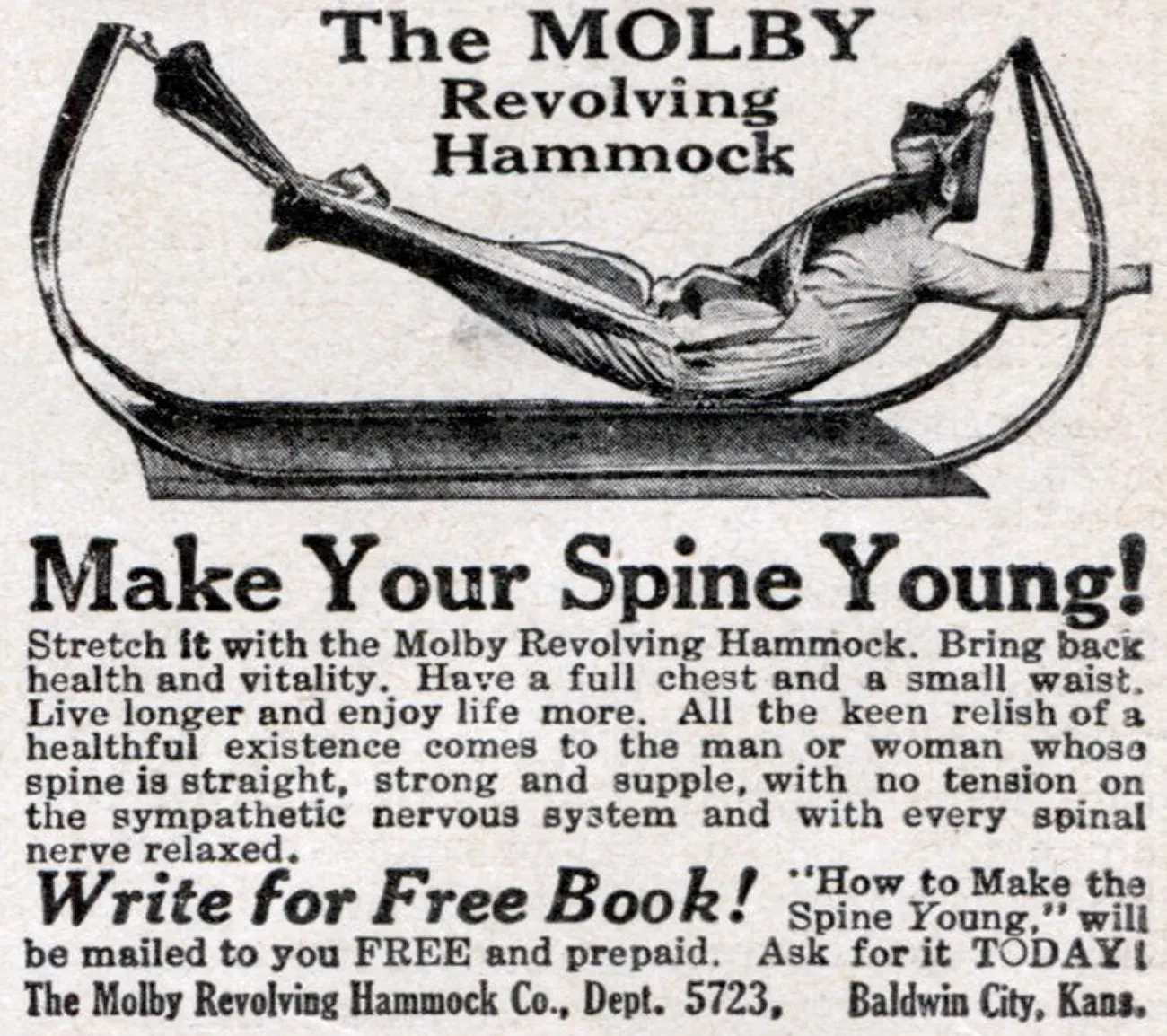
The Molby Revolving Hammock.

The Twist ‘N Tone. Itclaimed to ‘provide the same simulating exercise as expensive equipment used in health clubs’.

Portable sauna in 1969.

Electrical currents were also used in small baths to stimulate blood circulation.
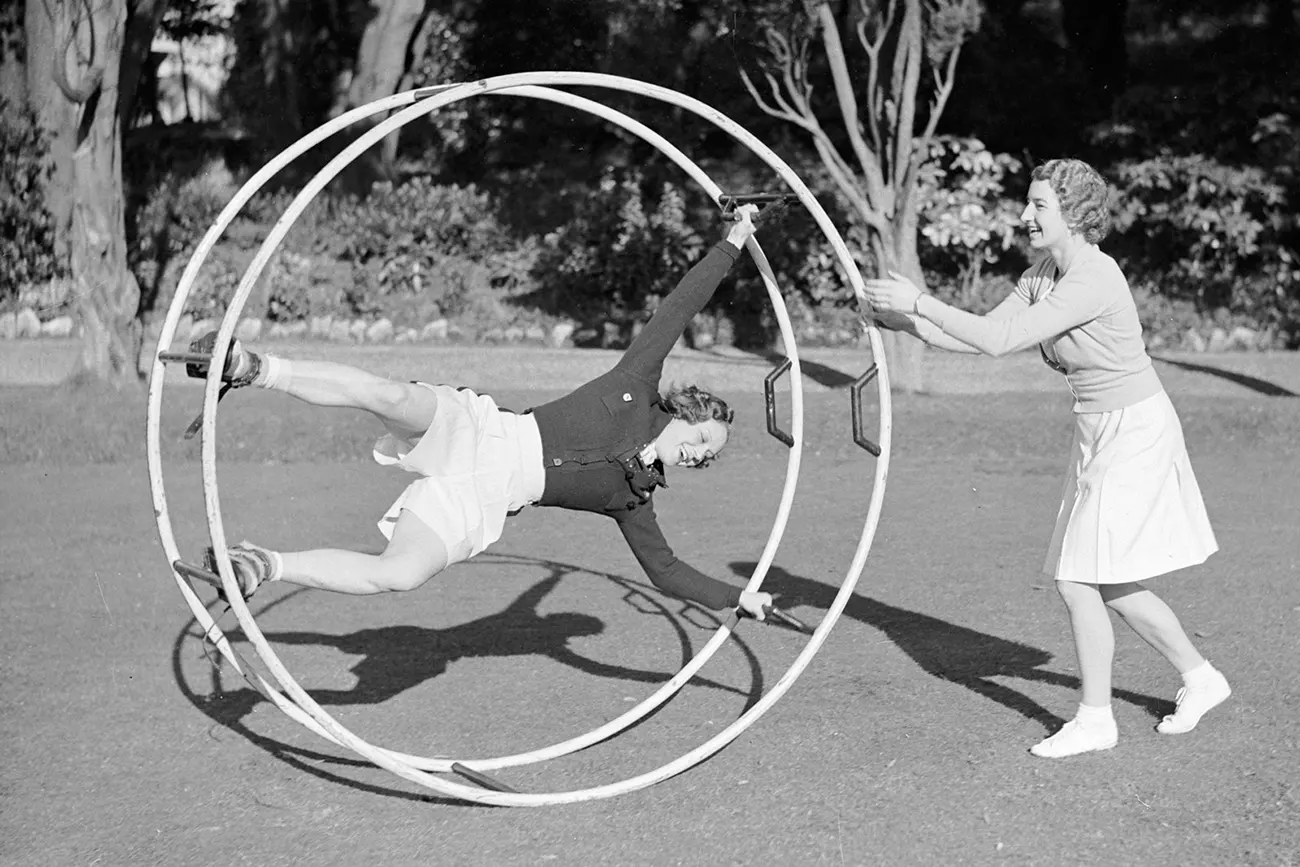
Human hamster wheel in 1936.

Nautical treadmill in 1953.

Mechanical bull in 1928.

The Reducing Belt, advertised to only wear for an hour a day and to lose 4-6 inches.
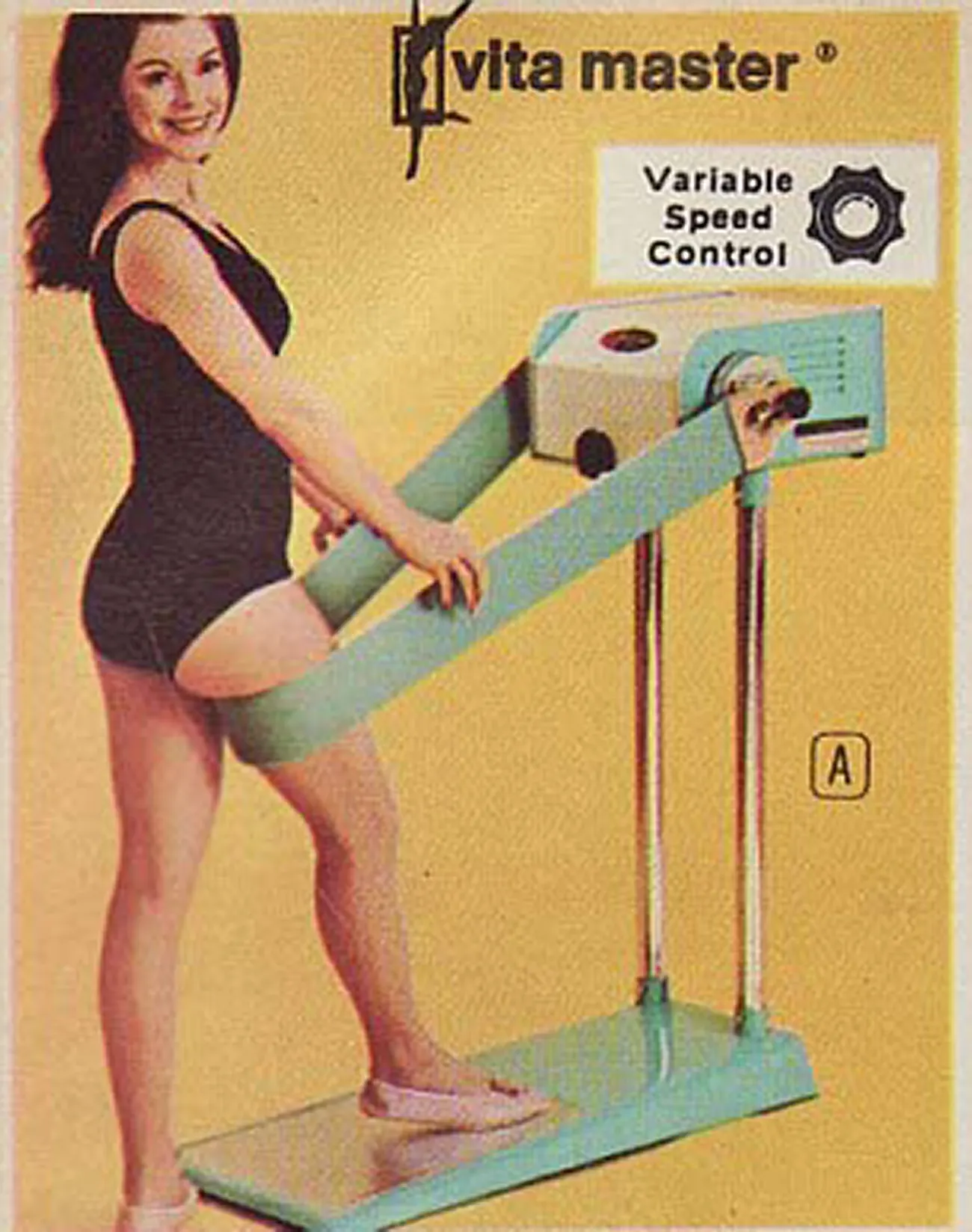
The Vita Master with variable speed control.

Air Shorts: These inflatable shorts are great for back support and shedding weight too..
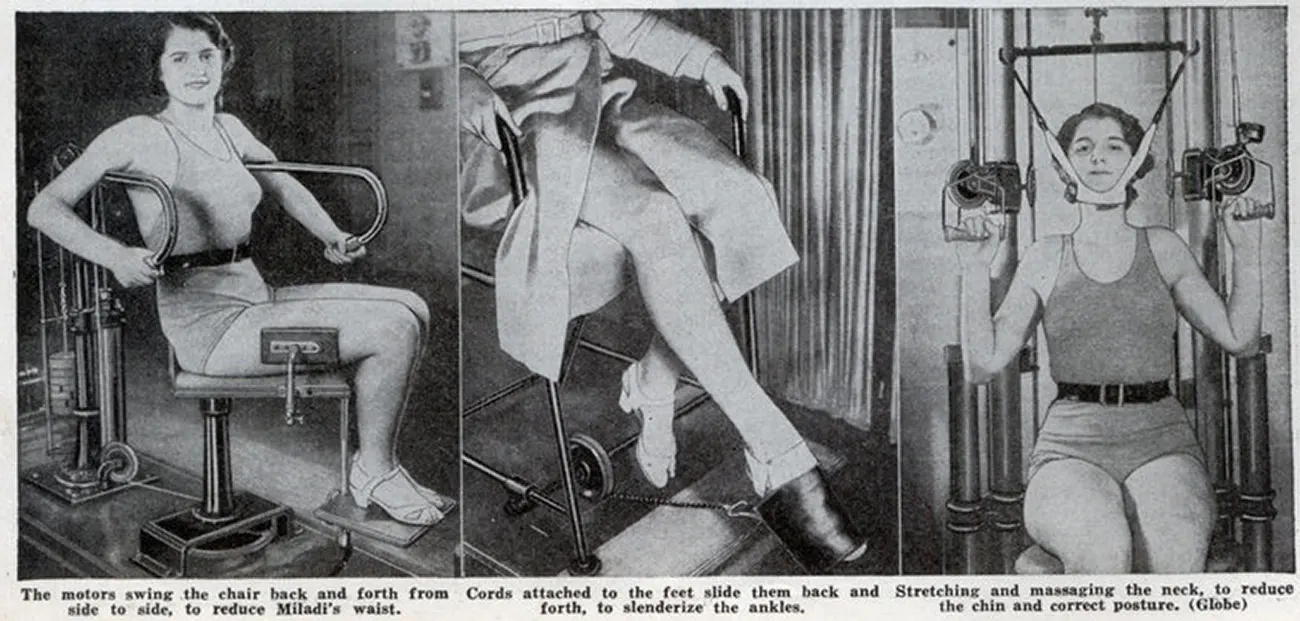
A vintage exercising machine.

Rowing machine in 1925.
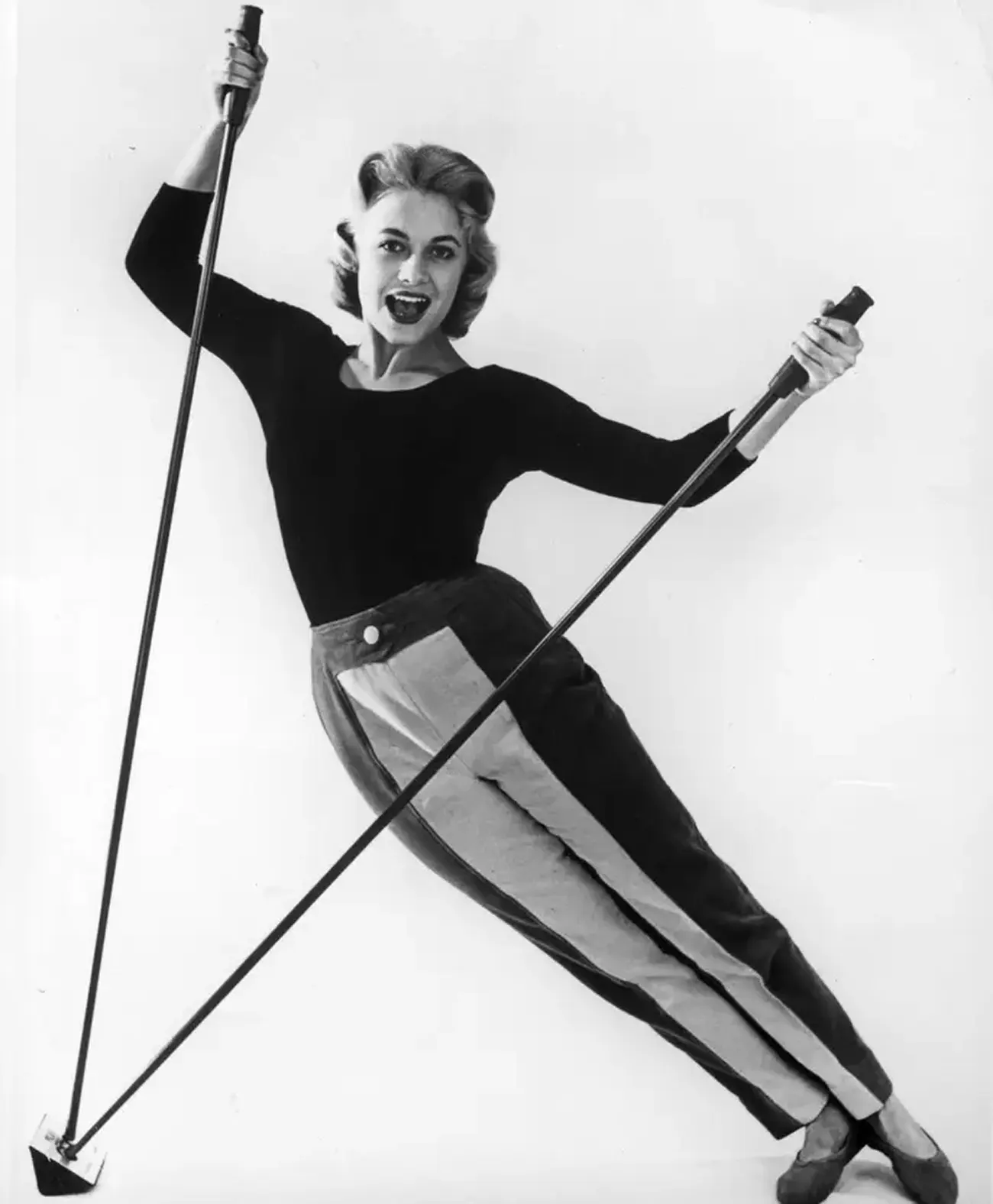
The Las Picas is an exercise apparatus that became popular in the late ’60s. It allowed users to contort every which way.
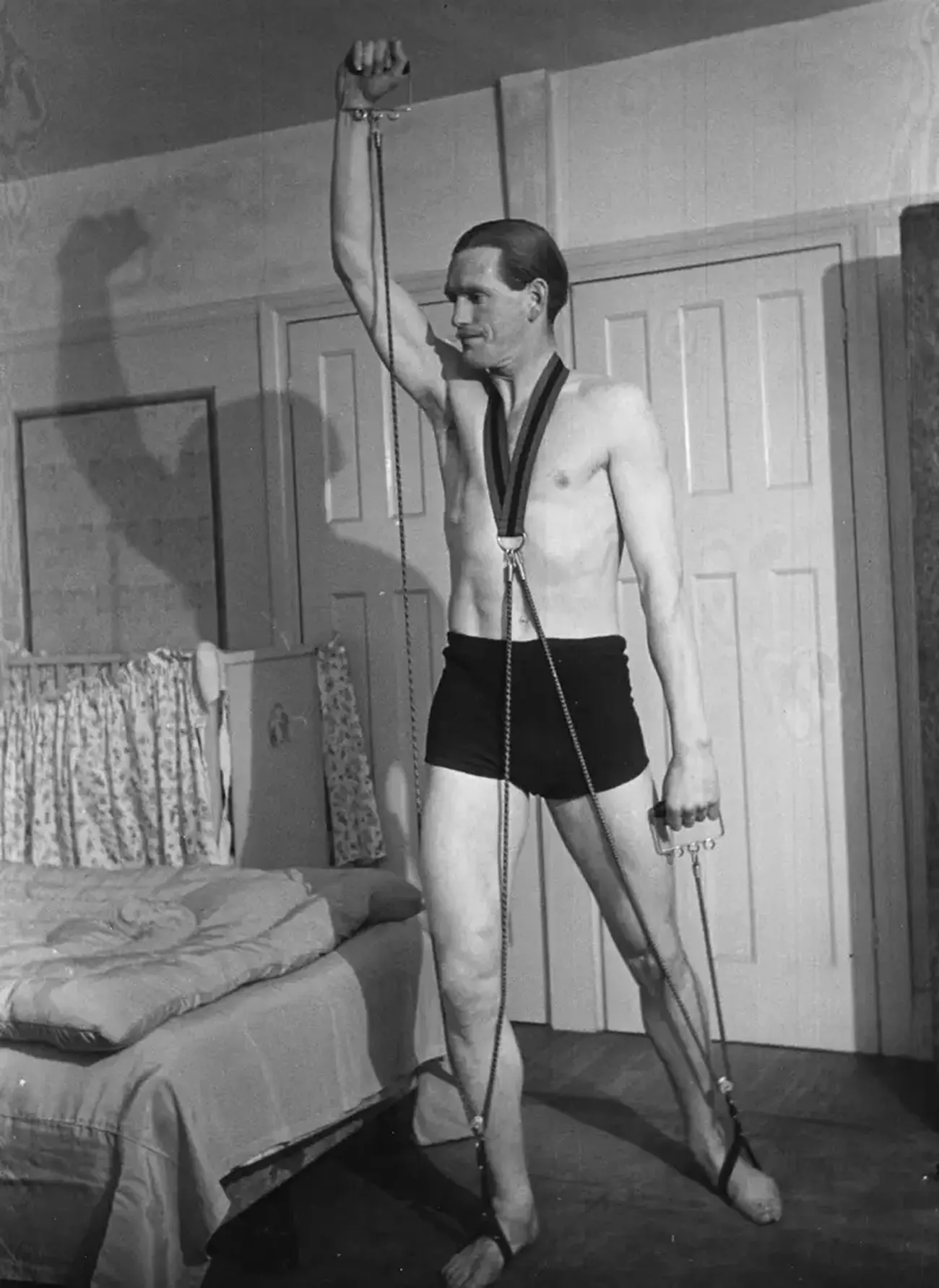
Exercise device in 1950.

Running machine in 1928.
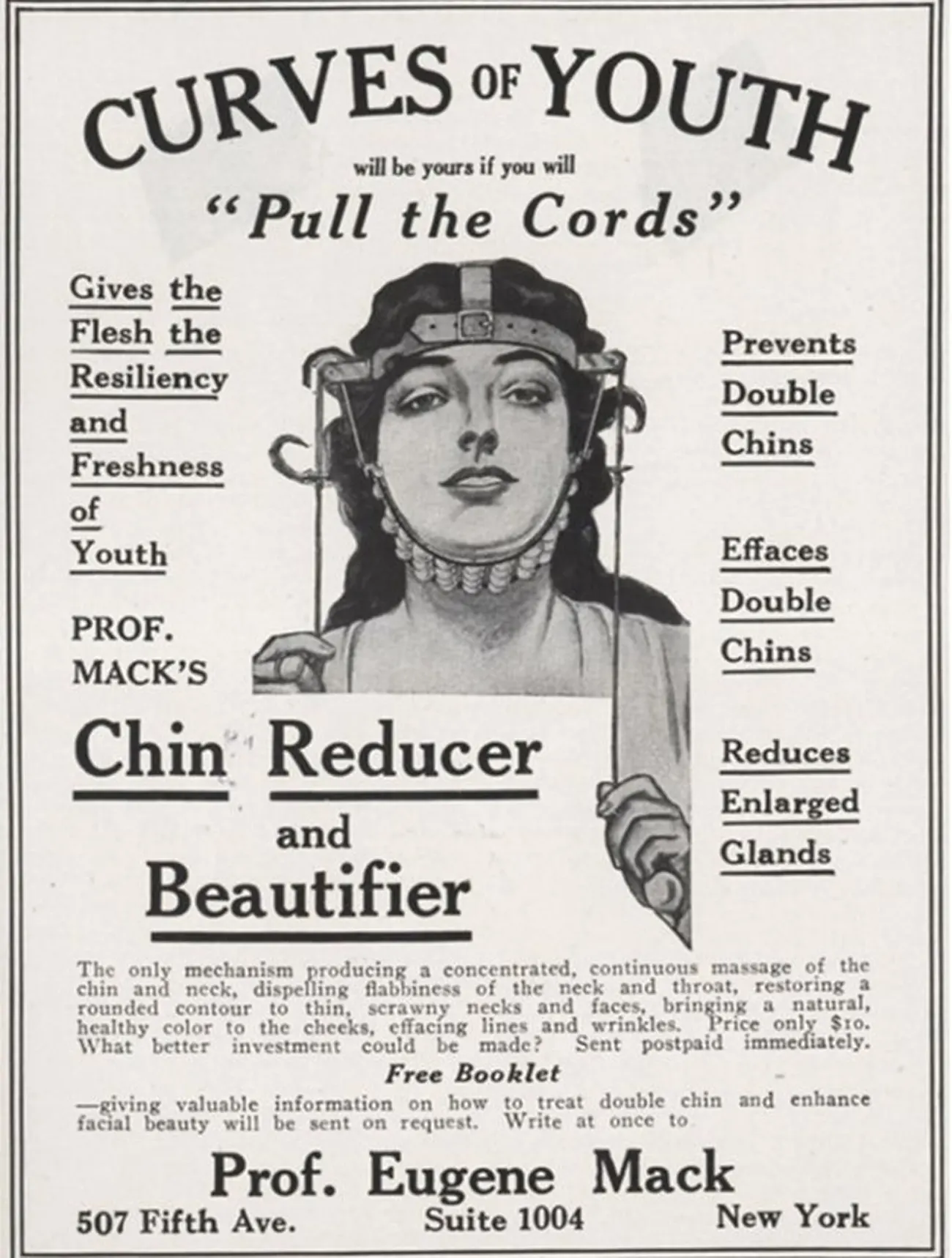
Chin Reducer and Beautifier.
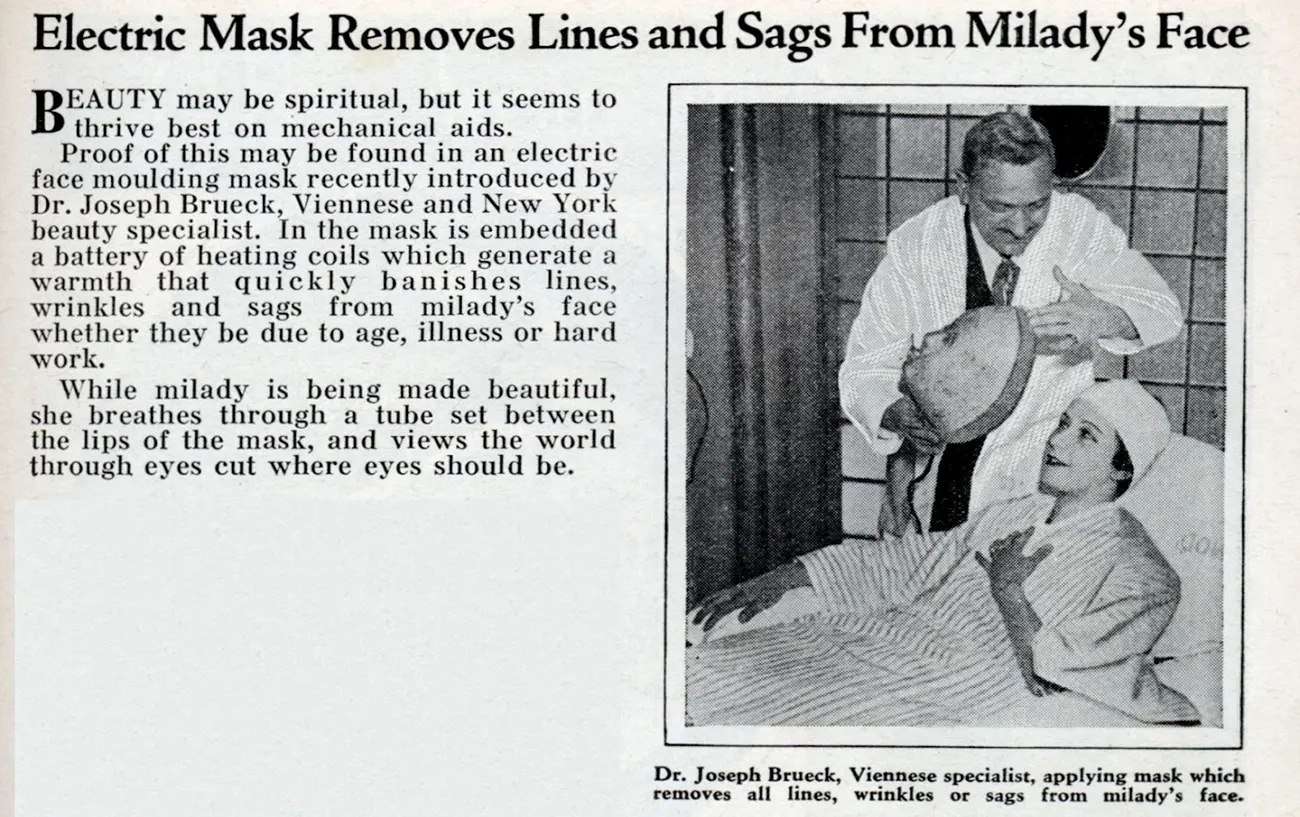
Electric Mask to rejuvenate the face.
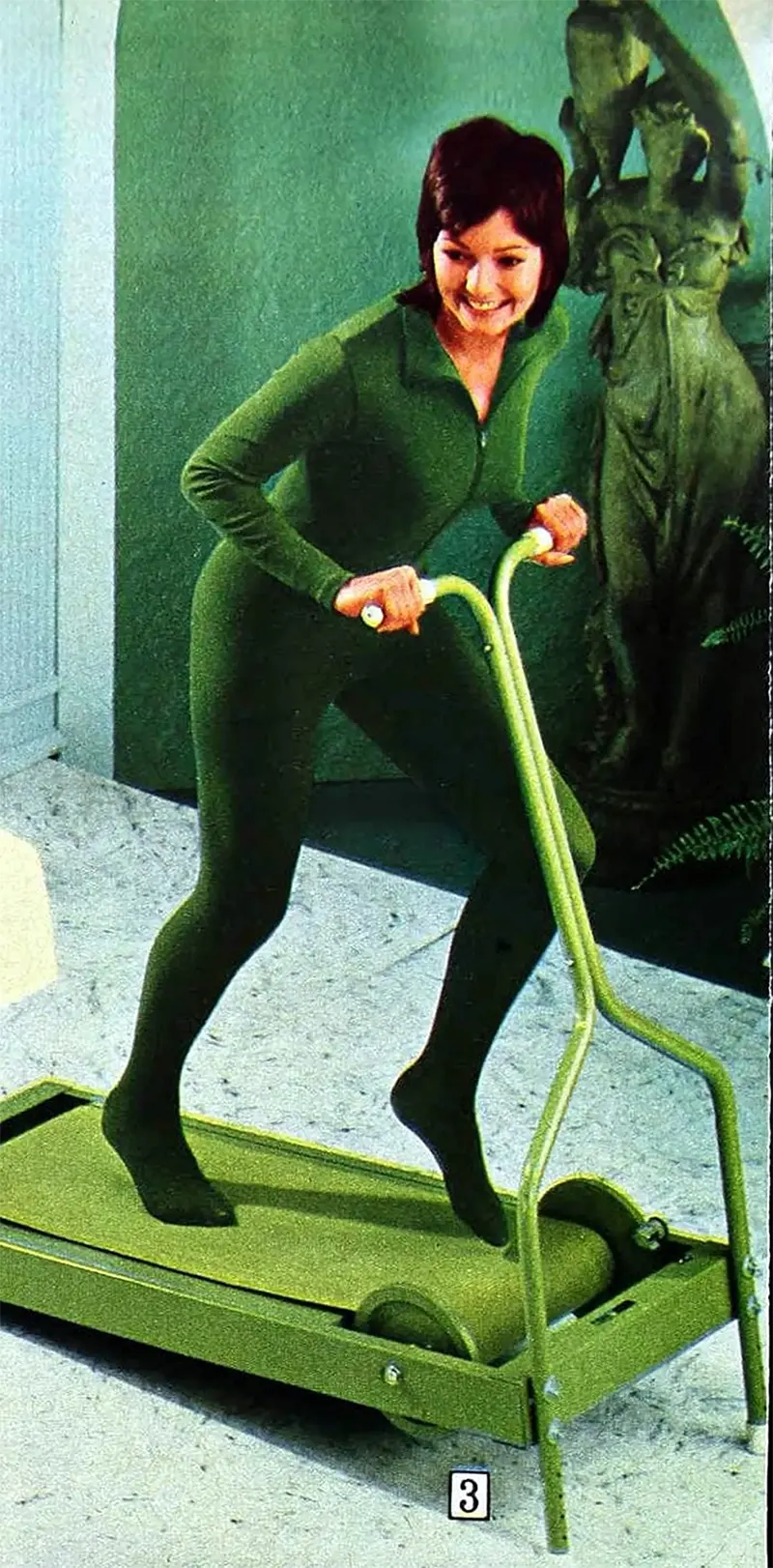
Glide-A-Matic exerciser: A lawnmower-style treadmill.
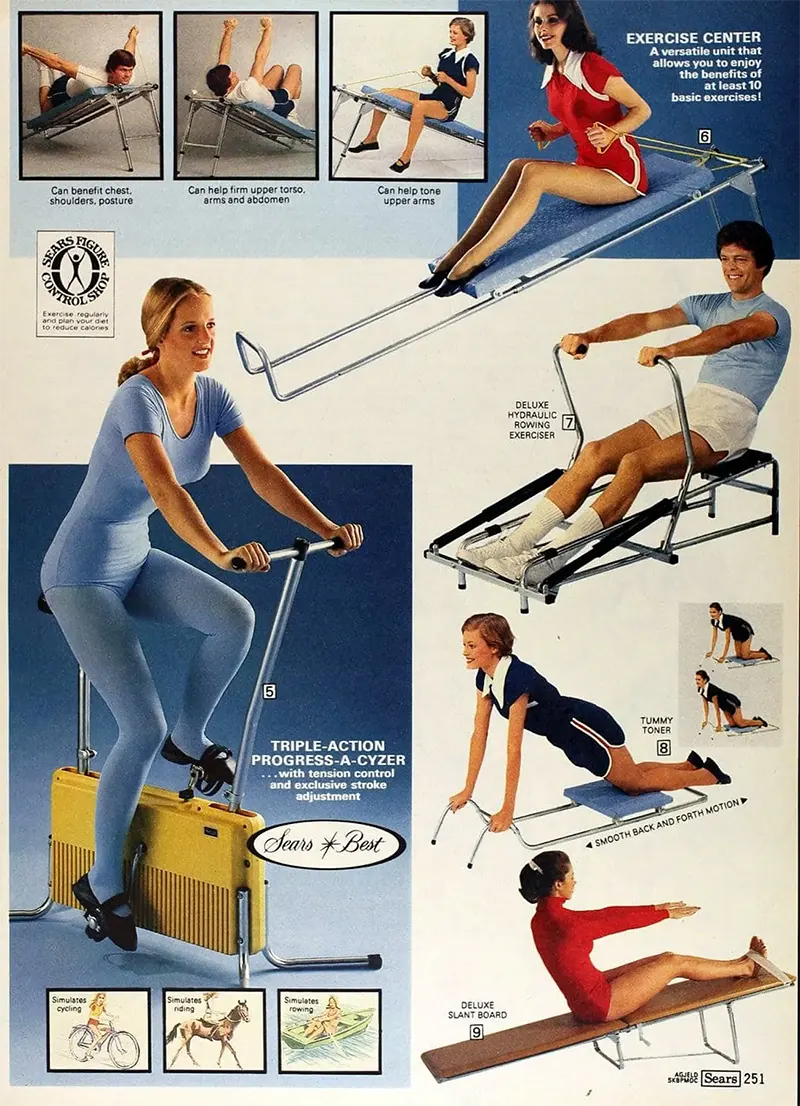
Exercise center workout equipment from 1970s.
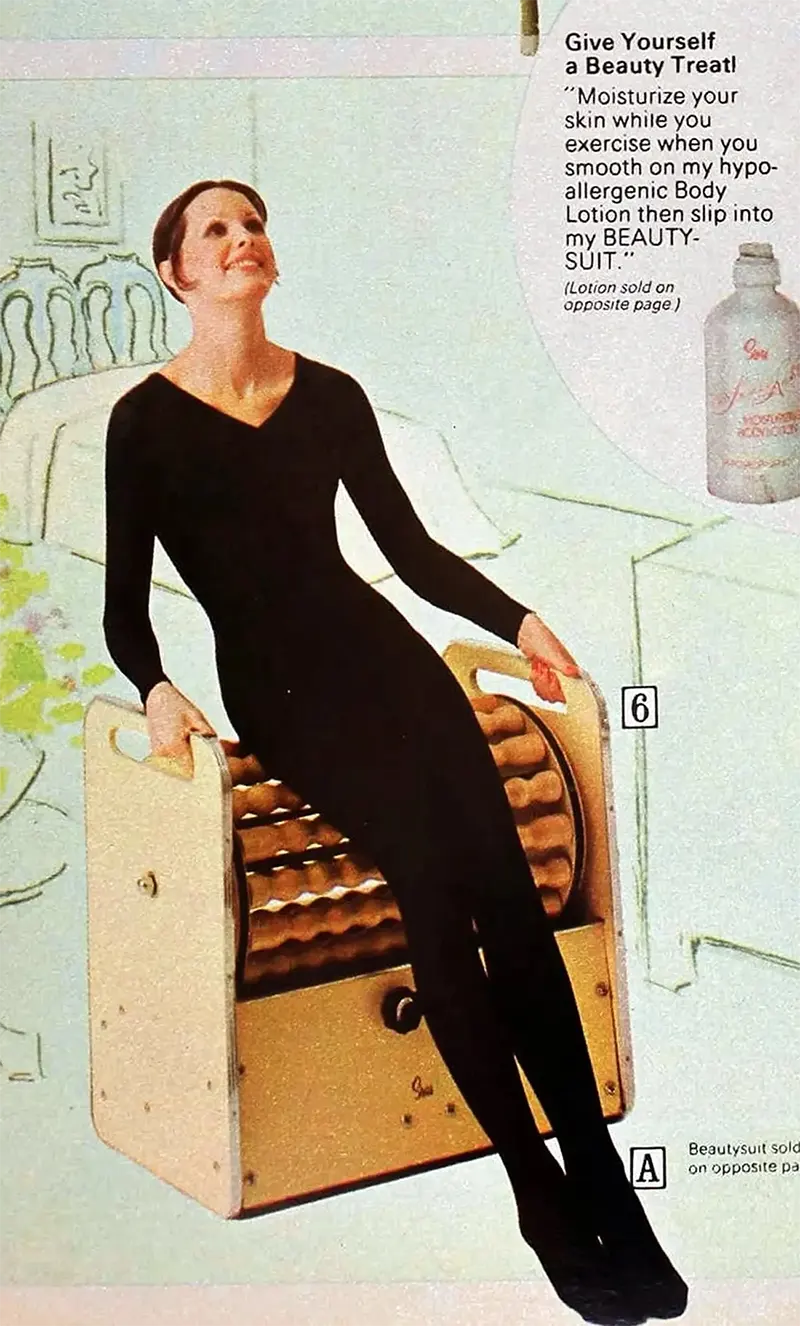
Retro-style roller massager.
(Photo credit: INSIDER / The Atlantic / Vintage Ads Database).